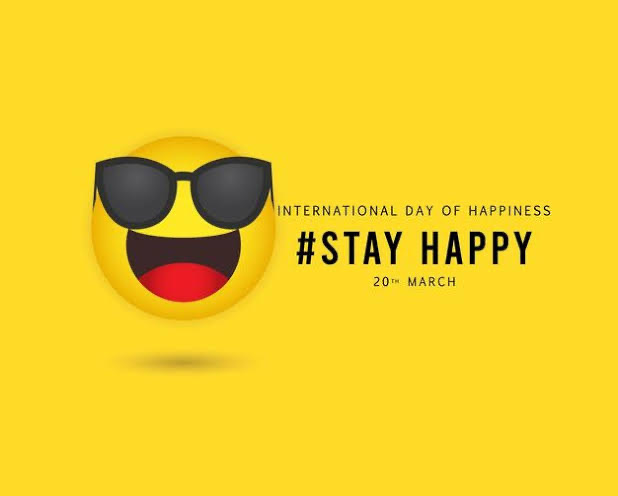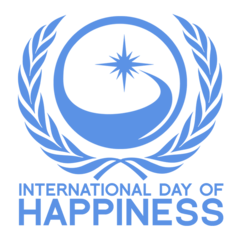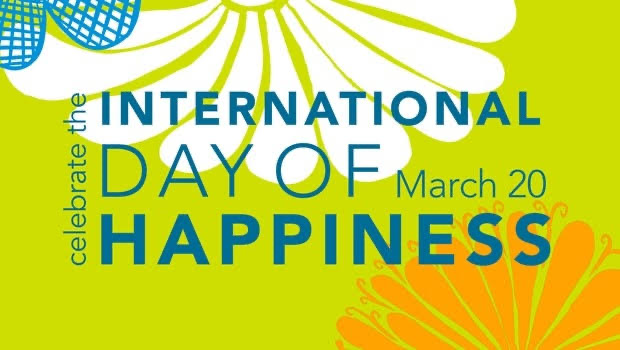It is Saturday, 20 March 2021
(W11/D79/286 rem)
Today is: 
 International Day of Happiness
International Day of Happiness 

International Day of Happiness  aims to celebrate happiness all over the world, inspiring people to spread positivity, whether big or small, with others and encouraging each nation to prioritize the happiness of its citizens.
aims to celebrate happiness all over the world, inspiring people to spread positivity, whether big or small, with others and encouraging each nation to prioritize the happiness of its citizens.
As one of, if not the key pursuit of human life, it’s no surprise that there’s been endless philosophizing and discussion on the subject of happiness for thousands of years.
The Ancient Greek philosopher Aristotle, for example, argued that happiness is the only thing humans seek in and of itself – all our other wants and desires ultimately contribute to our happiness, while happiness itself is the end goal. And in the 18th and 19th centuries, utilitarians such as Jeremy Bentham and John Stuart Mill developed an ethical theory that saw virtuous acts as those which maximize happiness and decrease suffering.

Happiness can bring a fairer and more balanced approach to economic growth in particular, such that it foregrounds sustainable development, tackles poverty and increases personal and social well being. A great example of this is the East Asian country of Bhutan, which adopted the idea of Gross National Happiness over Gross National Product in the 1990s, prioritizing its citizens’ happiness in all decisions relating to economic growth.
Happiness on a personal level can make any day better and add great value to your life. But what if happiness was cherished on an international scale? How would that change the way the economy works or how societies function?
International Day of Happiness  has a truly global history regarding its creation. Back in 2011, the idea was introduced to the United Nations by the advisor Jayme Illien. Illien also founded the United Nations New Economic Paradigm project and ‘happytalism’, which aim to change the way nations approach economic growth by focusing on ‘happytalism’ over capitalism.
has a truly global history regarding its creation. Back in 2011, the idea was introduced to the United Nations by the advisor Jayme Illien. Illien also founded the United Nations New Economic Paradigm project and ‘happytalism’, which aim to change the way nations approach economic growth by focusing on ‘happytalism’ over capitalism.
The General Assembly of the United Nations agreed with the proposal and officially founded International Day of Happiness  in July of 2012, with the occasion first being observed in 2013. The celebration acknowledges how important and desirable happiness is to people everywhere and how essential it is that happiness is incorporated into public policy.
in July of 2012, with the occasion first being observed in 2013. The celebration acknowledges how important and desirable happiness is to people everywhere and how essential it is that happiness is incorporated into public policy.

Three ways you can celebrate the International Day of Happiness  :
:
Happier: Do something for your own happiness - make time to do something you really enjoy, get moving outside, learn something new or write down three things you’re grateful for.
Kinder: Do something for someone else - donate to a food bank or charity, text or call someone to tell them what you appreciate about them, volunteer in your local community.
Together: Share the International Day Of Happiness  with others and help more people get involved in the day and thinking about ways to promote happiness and mental health.
with others and help more people get involved in the day and thinking about ways to promote happiness and mental health.
#InternationalDayOfHappiness 
Have a fantastically happy Saturday! 


 Good morning!
Good morning! 